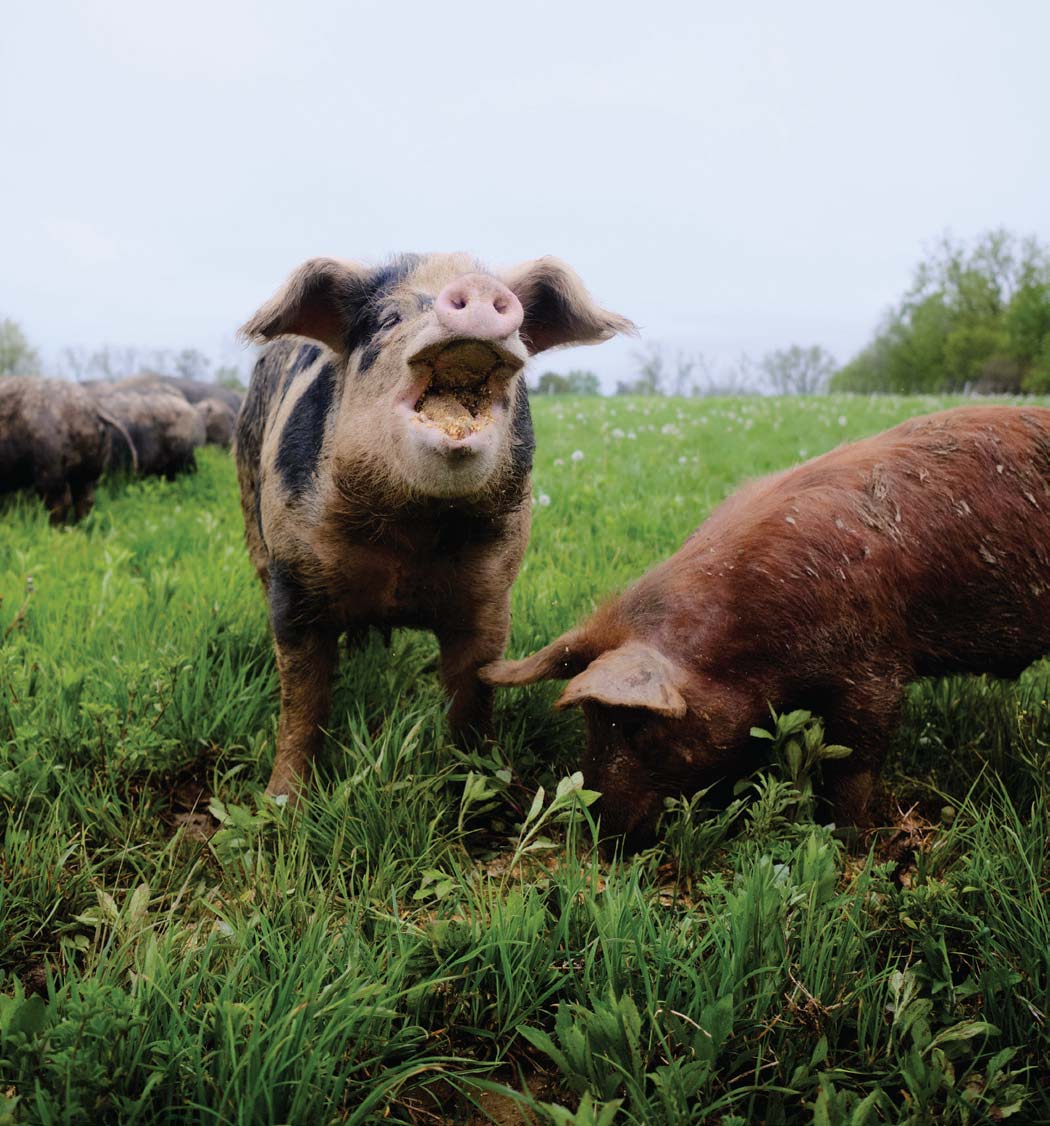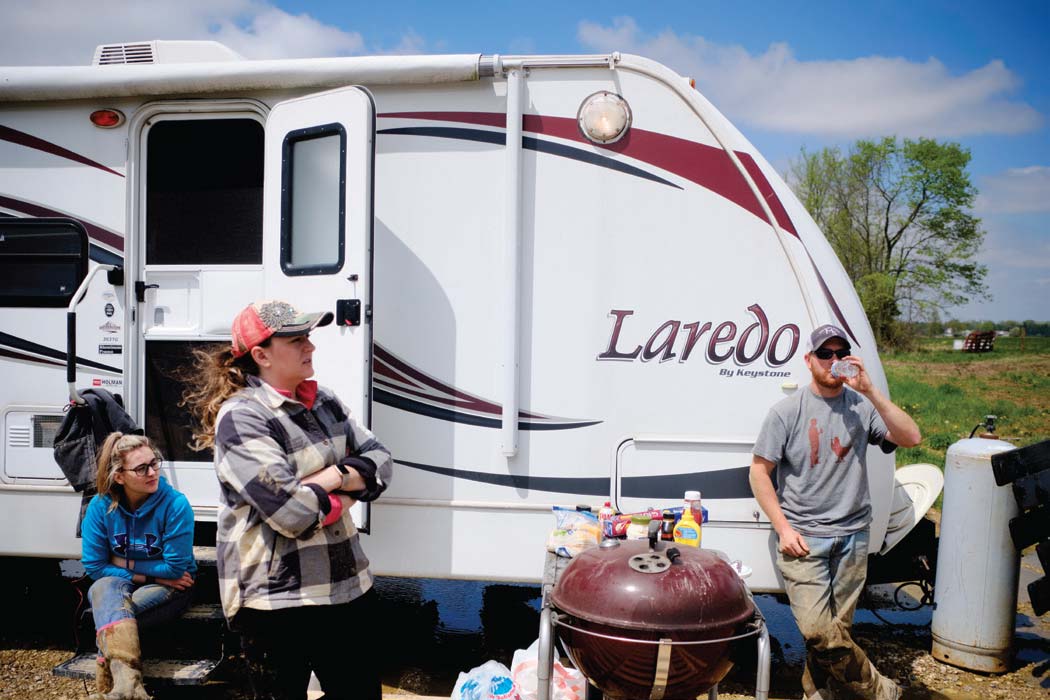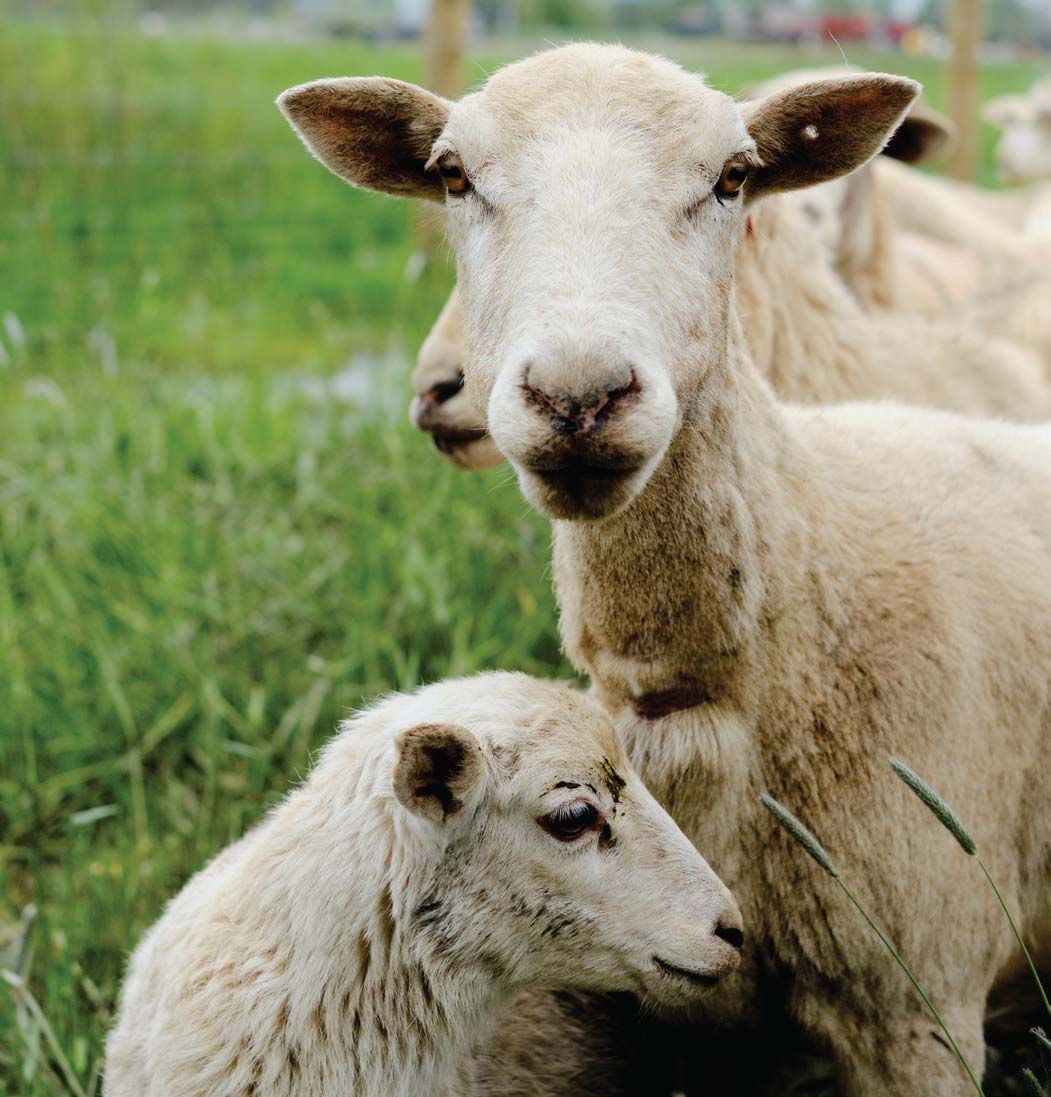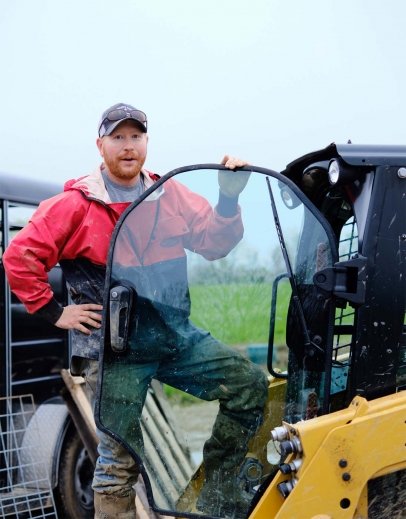THE FIRST
Dreams come true at Covey Rise Farms
Five years ago, Charlie Payne decided he no longer wanted to live by the advice of others.
“I’d always been told that if you didn’t inherit a farm, it takes too much money [to own one] and you’ll never be able to do it,” he says, and he took those words to heart for many years. He went to school at Virginia Tech, found work as a wildlife biologist and eventually settled in Columbus.
Then in 2014 a friend handed him a copy of The Omnivore’s Dilemma, by Michael Pollan. It was the right book at the right moment—though Payne admits he didn’t make it beyond the chapter on Joel Salatin.
AGAINST ALL GOOD ADVICE
Salatin, regenerative farming icon and spokesperson, was exactly the inspiration Payne needed and a counterweight to the “you can’t do this” arguments. Salatin’s model of rotational grazing, creating a closed-loop system with minimal off-farm inputs and direct marketing to consumers all made sense. So at 26 years old, against the advice of everyone he knew, Payne bought seven acres of farmland, three colonies of honeybees, 100 meat chickens, 25 laying hens and several lambs.
Payne’s original goal was to provide food for himself, though he also started selling wholesale to restaurants in Columbus that first year. He doubled his acreage the second year and has nearly doubled the farm’s production each year since. As he tells me this, we’re sitting on a pallet of building materials next to several shipping containers and an assortment of lumber and feed. This unassuming setup overlooking vast fields and a few scattered homes will soon be the 70-plus-acre permanent home of Covey Rise Farms, outside of Radnor, Ohio.
FROM THE GROUND UP
As a first-generation farmer, Payne acknowledges that the advice and warnings he received have merit. By 2017, he knew that the farm would require more acreage to produce at the scale he wanted to reach. But without a large land base or equipment, securing financing to purchase a larger farm was a serious challenge. He was laughed at by one lender who wasn’t interested in a 20-something kid with little farming experience and less collateral.
Fortunately, the United States Department of Agriculture (USDA) had loan options available for beginning farmers, and though it took a year to complete the process, the USDA offered rates that were feasible for someone just starting out. Payne says he was also fortunate to have a seller who believed in him and was willing to work with the extended loan process. He had expected to be grazing on the new property last year, but he’s taking it one step at a time and is grateful to be where he is.
Covey Rise Farms is still operating at full capacity on leased property and Payne still works off-farm, meaning he is an insanely busy person. But with the purchase of the new land, Payne and his girlfriend, Kerissa Jenkins, will have accomplished what he always heard was impossible: building a farm, and all the infrastructure that goes with it, from the ground up.

 Talona and Kerissa Jenkins stand with Charlie Payne outside Charlie’s trailer on the Covey Rise Farm.
Talona and Kerissa Jenkins stand with Charlie Payne outside Charlie’s trailer on the Covey Rise Farm.

THE BIGGER PICTURE
One advantage to being a first-generation farmer, Payne says, is that he didn’t have ingrained ideas about how things have always been done. He’s been able to look objectively at what works well, and what doesn’t. He chooses to raise his animals on pasture because he thinks it’s better both for the animals and the environment, and he knows that it produces a product that he is proud of.
He also understands that he is only one part of a bigger picture and he is intentional about partnering with others whose values and ideals match his own. Covey Rise Farms audits the processers for all their animals, and they use Ohio-based suppliers like the Kraut Creek Natural Feed Company in Greenville.
“With us, almost everything we do is done within Ohio. We use Ohio-raised grains, and we use Ohio processors. That dollar when you shop at a local farm gets transferred back into the community five or six times.”
Keeping his focus as local as possible is important because he thinks that’s key to revitalizing rural areas where small businesses and shops have a hard time competing with large corporations. In agriculture, too, Payne says that the USDA’s “get big or get out” cheerleading in the 1970s and ’80s has meant that small to medium-sized farms have had a hard time competing as well.
He acknowledges, though, that he’s still an outsider in the industry—the guy who raises chickens outdoors and wants only non-GMO feed. But at 31 years old, he’s around half of the age of the average farmer in the United States, and he believes that there are opportunities for changing the future of agriculture and for other first-generation farmers to make a contribution.
DEBT OF GRATITUDE
Covey Rise Farms sells at two farmers markets, offers online purchasing with dropoffs in Columbus and shipping for anyone accessible by two-day delivery. You can also find Covey Rise Farms’ products at a growing number of restaurants in Columbus, including Watershed Kitchen and Bar, Comune, The Sycamore, The Market in Italian Village, Wolf’s Ridge Brewing and The Keep Kitchen and Liquor Bar.
Payne says that restaurants were the farm’s earliest customers, before farmers markets or online sales, and their support for the 20-something kid with big dreams has helped the farm to grow steadily over the last five years. The positive feedback from Columbus chefs in particular has been an encouragement and has helped Payne to realize that he could make farming a full-time endeavor.
“We owe a huge debt of gratitude to a number of chefs,” Payne says, “because without their support none of this would have happened.”
You can find Covey Rise Farms at the Westerville and New Albany Farmers Markets, or online at coveyrisefarmsohio.com.





